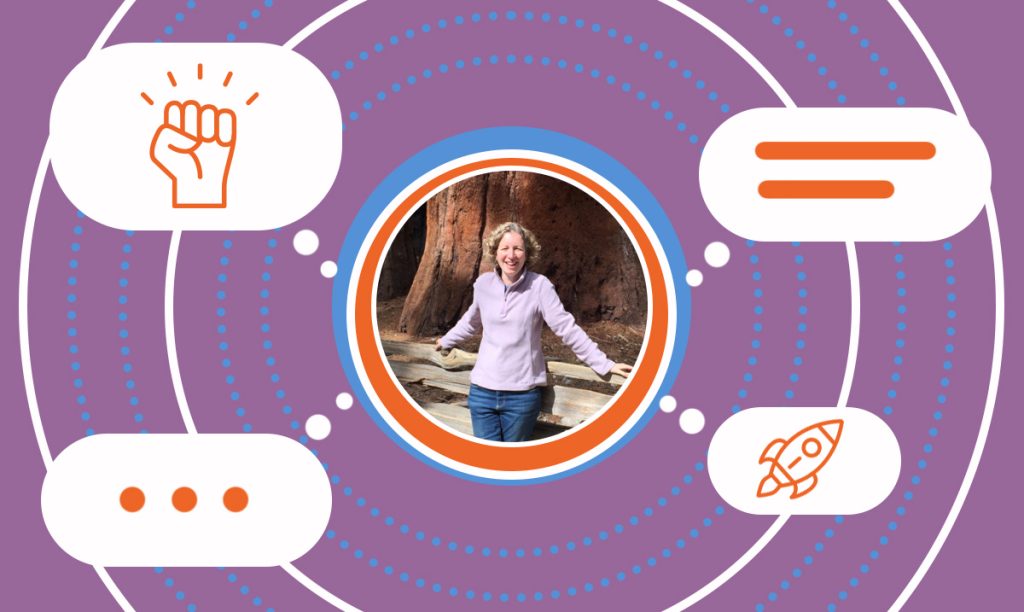In this interview, we delve into the inspiring journey of Shira Yevin, founder and CEO of Gritty In Pink and the INPINK marketplace and frontwomanof ...
Sarah Dusek on Empowering Women Entrepreneurs in Africa
Written by: Esther Strauss
Esther is a business strategist with over 20 years of experience as an entrepreneur, executive, educator, and management advisor.
Published on July 23, 2024

Welcome to our interview with Sarah Dusek, co-founder and managing partner of Enygma Ventures. Sarah is a seasoned entrepreneur and investor dedicated to empowering female entrepreneurs in Sub-Saharan Africa through financial support, mentorship, and access to markets. Under her leadership, Enygma Ventures aims to close the gender gap in entrepreneurship and foster sustainable, scalable businesses. Join us as we delve into Sarah’s journey, insights, and advice for aspiring business owners.
Inspiration Behind Enygma Ventures
SBS – What inspired you to start Enygma Ventures?
Sarah – The idea to co-found Enygma Ventures emerged from my personal journey as a female entrepreneur. I experienced firsthand the difficulties women face in securing capital and scaling businesses. During my career, I saw the lack of investors willing to support female-led ventures. After selling my previous company in 2018, I decided to become the kind of investor I myself had needed, which led to the creation of Enygma Ventures in 2019.
Enygma Ventures aims to level the playing field by investing in driven female entrepreneurs who often go unnoticed. Our goal is not only to fund businesses but also to spark a movement towards equality for women in the business world. We are dedicated to empowering women to succeed, build significant enterprises, and make meaningful contributions to society. By supporting more women in leadership and influential roles, we strive to improve the world for everyone.
Influence of Under Canvas Experience
SBS – How did your experience with Under Canvas influence your approach to investing in female entrepreneurs?
Sarah – My experience with Under Canvas significantly shaped my approach to investing in female entrepreneurs. Building Under Canvas from the ground up, I faced numerous challenges in understanding the investment world and raising capital. Initially, I had no knowledge of how to create a pitch deck or communicate the value of my business to investors. A pivotal moment was when a venture capitalist visited one of our sites and stressed the urgency of raising capital to grow and compete. This experience taught me the importance of understanding and playing by the rules of the finance game to scale a business successfully.
Now, as an investor, I focus on closing the knowledge gap for other women entrepreneurs. I strive to provide the critical information and support they need to navigate the investment landscape, create compelling pitch decks, and build scalable businesses. My journey with Under Canvas highlighted the significance of mentorship, knowledge, and the right networks, which I now prioritize in my investment approach.
Challenges for Female Entrepreneurs
SBS – What are the biggest challenges female entrepreneurs face in Sub-Saharan Africa?
Sarah – Female entrepreneurs in Sub-Saharan Africa face several significant challenges:
- Access to capital — Women in the region routinely access less than 2% of all venture capital deployed annually, a statistic that has barely changed over the years. This limited access to financial resources severely restricts their ability to start and scale businesses.
- Societal and cultural barriers — Societal norms and cultural expectations often limit women’s opportunities and resources. Traditional gender roles can restrict their involvement in business activities, and they may face resistance from their communities and families when pursuing entrepreneurial ventures.
- Lack of mentorship and support networks — Mentorship and support networks are crucial for business growth and development, yet many female entrepreneurs in Sub-Saharan Africa do not have access to such resources. This lack of guidance and support can make it challenging to navigate the entrepreneurial landscape and overcome obstacles.
If we address these challenges through targeted interventions, such as improving access to finance and providing mentorship programs, we can create a more supportive environment for female entrepreneurs in Sub-Saharan Africa to thrive and succeeds.
Identifying Scalable Business Propositions
SBS – How do you identify scalable and defensible business propositions? What criteria do you use to evaluate potential investments?
Sarah – When evaluating potential investments, I look for businesses with a clear and compelling value proposition, a scalable business model, and strong market demand. Key criteria include:
- Market size and opportunity — Is there a substantial and growing market for the product or service?
- Revenue model — Does the business have a proven revenue model with significant potential for growth?
- Traction and metrics — Are there key performance indicators that demonstrate growth and customer retention?
- Team — Does the founding team have the passion, experience, and expertise to execute their vision?
- Defensibility — What are the unique advantages or barriers to entry that protect the business from competitors?
- Impact — Is the business creating positive social or environmental impact in addition to financial returns?
These criteria help ensure that the businesses we invest in have the potential to grow significantly and create lasting value.
Concept Validation Support
SBS – How do you support businesses in validating their concepts quickly and efficiently?
Sarah – When it comes to supporting businesses in validating their concepts quickly and efficiently, my approach is grounded in practical, real-world strategies. Here’s how I do it:
- Clarify your purpose — Ensure that your business idea is deeply connected to a clear purpose. When we started Under Canvas, our mission was to make the outdoors accessible to more people while preserving nature. A strong sense of purpose will drive your business forward and resonate with both customers and investors.
- Develop a pitch deck — A compelling pitch deck is essential. It tells your story, showcases your vision, and presents the data and metrics that matter to investors. This was crucial in my journey with Under Canvas, and it’s a powerful tool for any business to communicate their concept effectively.
- Customer feedback and iteration — Engage with your customers early and often. Get feedback on your product or service and be ready to iterate based on what you learn. This approach helped us refine our offerings and better meet market needs.
- Measure your impact — From the outset, think about how your business will make a positive impact. This could be environmental, social, or economic. At Under Canvas, we focused on sustainable practices that minimized our environmental footprint. Highlighting your impact helps validate your concept by showing it’s not just profitable, but also meaningful.
Role of Mentorship
SBS – What role does mentorship play in the success of your portfolio companies?
Sarah – Mentorship plays a critical role in the success of my portfolio companies. Having experienced mentors can provide valuable guidance, industry insights, and strategic advice that are crucial for navigating the complexities of growing a business. Mentors help entrepreneurs avoid common pitfalls, make informed decisions, and build confidence. They also provide a network of connections that can open doors to new opportunities and resources. In my experience, mentorship has been instrumental in helping female entrepreneurs scale their businesses and achieve their goals.
Importance of Revenue Models
SBS – Can you discuss the importance of having a proven revenue model for businesses seeking investment?
Sarah – Having a proven revenue model is vital for businesses seeking investment. It demonstrates to investors that the business can generate consistent income and has a clear path to profitability. A strong revenue model also helps in understanding the unit economics, such as CAC and LTV, which are critical for scaling the business. Investors look for predictable and recurring revenue streams, as these indicate stability and growth potential. A well-defined revenue model also provides a framework for projecting future financial performance and helps in making strategic decisions.
Common Funding Mistakes
SBS – What are some common mistakes you see entrepreneurs make when seeking funding?
Sarah – Entrepreneurs often make several common mistakes when seeking funding:
- Lack of preparation — Many entrepreneurs fail to prepare adequately before meeting with investors. This includes not having a well-structured pitch deck, not understanding key financial metrics, and not being able to clearly articulate their business model and growth strategy.
- Overemphasis on product over market fit — Entrepreneurs can become overly focused on their product or service without adequately demonstrating market demand or product-market fit. Investors need to see evidence that there is a significant and sustainable market for the offering.
- Poor financial understanding — Many entrepreneurs are not well-versed in their financials. This includes not knowing key metrics such as customer acquisition cost (CAC), lifetime value (LTV), burn rate, and revenue projections. Investors need to see that the entrepreneur has a solid grasp of their financials and a realistic path to profitability.
- Lack of traction — Not demonstrating enough traction or progress can be a deal-breaker. Entrepreneurs need to show evidence of growth, customer acquisition, and market acceptance. This could include user metrics, sales figures, or significant partnerships.
- Ineffective storytelling — Failing to tell a compelling story that connects emotionally with investors can hinder funding efforts. Investors need to be inspired by the vision and mission of the company, as well as understand the problem it solves and the impact it can make.
Scaling Business Advice
SBS – What advice would you give to entrepreneurs looking to scale their businesses?
Sarah – Pace yourself. Scaling a business is more like a marathon than a sprint. It’s important to manage your energy wisely and avoid burning out. Early on, I wish I had known how successful I could be, which might have reduced the pressure and helped me focus on consistent progress rather than quick wins.
Believe in yourself and dream big. Confidence is key. If I had believed in my eventual success from the beginning, it would have eased much of the stress. Believing in your own potential isn’t just about staying positive; it’s essential for enduring the journey and overcoming challenges with less strain.
Enjoy the journey. Entrepreneurship is about more than just hitting milestones or achieving major successes. These moments are fleeting, and new challenges always arise. Learn to find joy in the daily grind, the small wins, and even the setbacks. Each stage of the journey offers valuable lessons.
Know when to let go. One of the most important skills in business is recognizing when to move on from something that’s not working. Whether it’s a strategy, a product, or a partnership, the ability to let go and pivot is crucial for long-term success. Being adaptable and open to change can make all the difference.
Accept the emotional rollercoaster. Understand that the entrepreneurial path is full of ups and downs. You’ll have days of discouragement and moments of triumph. These emotional fluctuations are normal. Don’t hesitate to seek support when needed — reaching out for help is a sign of strength, not weakness.
Remember, every step, whether forward or backward, is part of your learning and growth in the exciting world of entrepreneurship.
Emerging Entrepreneurial Trends
SBS – What trends do you see emerging in the entrepreneurial landscape in Africa?
Sarah – In the entrepreneurial landscape of Africa, several exciting trends are emerging that signal a vibrant and transformative future for the continent:
- Rise of tech startups — Africa is witnessing a surge in tech startups, particularly in fintech, health tech, and agritech. These startups are leveraging technology to solve local challenges, increase financial inclusion, improve healthcare delivery, and enhance agricultural productivity. The rapid adoption of mobile technology and internet connectivity is fueling this growth.
- Increased investment in female entrepreneurs — There is a growing recognition of the importance of investing in female entrepreneurs. Women-led businesses are gaining more support from venture capital firms, accelerators, and government initiatives. This shift is helping to address the gender funding gap and empower women to lead impactful businesses.
- Expansion of e-commerce — E-commerce is booming across Africa, driven by the increasing penetration of smartphones and internet access. Online marketplaces are providing consumers with greater access to goods and services and enabling small businesses to reach broader markets. This trend is also supported by advancements in logistics and digital payment systems.
- Focus on sustainable and impact investing — Investors are increasingly looking at opportunities that not only promise financial returns but also deliver social and environmental impact. Sustainable and impact investing is gaining traction, with many startups focusing on renewable energy, waste management, and social inclusion.
- Youth entrepreneurship — With a significant portion of the African population being young, there is a vibrant wave of youth entrepreneurship. Young entrepreneurs are bringing fresh ideas, creativity, and innovation to the market. They are particularly active in the tech sector, using their skills to develop new solutions and business models.
Fostering Collaboration
SBS – How do you foster collaboration and networking among your portfolio companies?
Sarah – Fostering collaboration and networking among our portfolio companies is a crucial element of our strategy at Enygma Ventures. Here are the ways we achieve this:
- Creating a community — We prioritize building a strong sense of community among our portfolio companies. This involves regular interactions, both online and offline, to foster relationships and create a supportive environment where entrepreneurs can share experiences, challenges, and successes. We organize regular meetups, workshops, and retreats to bring everyone together.
- Peer-to-peer learning — Encouraging peer-to-peer learning is essential. We facilitate knowledge-sharing sessions where entrepreneurs can learn from each other’s experiences and insights. This could be through webinars, roundtable discussions, or informal coffee chats. These sessions help our entrepreneurs gain new perspectives and innovative solutions to common challenges.
- Mentorship programs — We connect our portfolio companies with experienced mentors and advisors who can provide guidance and support. Mentorship is a powerful tool for growth, and having access to seasoned professionals helps our entrepreneurs navigate the complexities of scaling their businesses.
- Collaborative projects and partnerships — We actively encourage and facilitate collaborative projects and partnerships between our portfolio companies. By identifying synergies and complementary strengths, we help them explore joint ventures, co-marketing opportunities, and other forms of collaboration that can drive mutual growth.
Future Plans for Enygma Ventures
SBS – What future plans do you have for Enygma Ventures to further support female entrepreneurs?
Sarah – Enygma Ventures is deeply committed to supporting female entrepreneurs as they grow and scale their businesses. Our future plans include the launch of Fund Two, which represents the next wave of funding aimed at equipping more women with the capital they need to succeed. This new fund will allow us to invest in a broader range of innovative female-led businesses, providing the financial backing that is crucial for their growth.
Additionally, my book, Thinking Bigger, serves as a vital resource for female entrepreneurs. It delves into the art and science of creating a winning pitch deck and provides practical tools and real-life examples to help women secure funding and scale their businesses. By combining these financial and educational resources, Enygma Ventures continues to create a more inclusive and dynamic business landscape for women.
Subscribe to Our Newsletter
and gain insider access to cutting-edge business insights and trends.
Featured Resources

How Shira Yevin Is Empowering Women in Music with Gritty In Pink
Published on June 21, 2024
Read Now

How Kristin Addis Empowers Women Through Solo Travel
Published on March 7, 2024
Kristin Addis, the creative force behind Be My Travel Muse, has turned her passion for solo female travel into one of the world’s leadingtrave ...
Read Now

How Meg Jerrard’s Vision United 300K Women in Travel
Published on February 5, 2024
In an enlightening conversation with Meg Jerrard, co-founder of Solo Female Travelers, we delve into the inspiring journey of this unique platform.M ...
Read Now
Comments